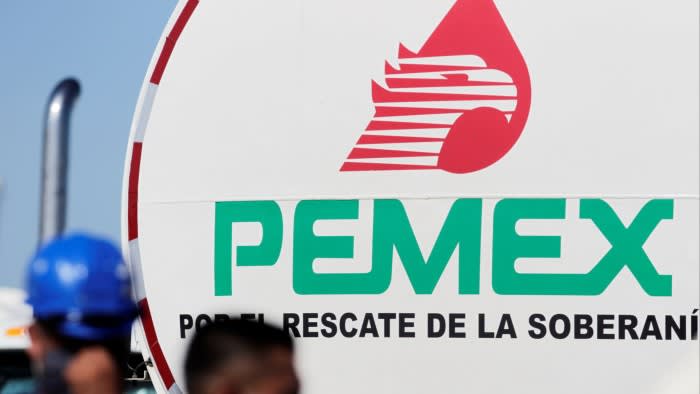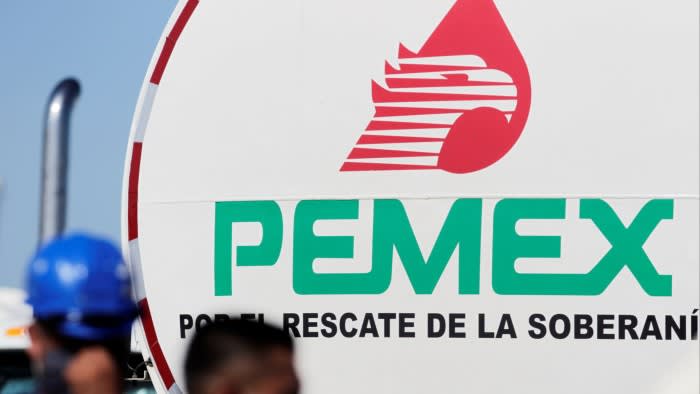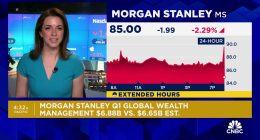
Good morning and welcome to Energy Source, which comes to you today from Mexico City and New York.
Oil traders are watching events closely in the Middle East following Iran’s military strike on Israel at the weekend, but for now they appear to have shrugged off fears of a wider war disrupting supplies.
Brent crude, the international benchmark, edged lower to $89.81 a barrel at
7.30am on Tuesday in New York, a fall of around 0.3 per cent.
The subdued reaction suggested markets were betting that the fallout from the strike would be contained after Iran said it considered the matter “concluded” and Washington sought to de-escalate tensions.
This FT Lex column suggests traders may also be questioning the extent of Iran’s military threat. The country will not want to hurt its own oil exports. These have picked up markedly in recent years, from a low of about 400,000 b/d in the pandemic year of 2020 to about 1.4mn b/d recently, according to Richard Bronze at Energy Aspects.
Meanwhile, my FT colleagues Tom Wilson and Antoine Gara have published a scoop this morning on Shell’s former chief executive Ben van Beurden joining private equity group KKR as a senior adviser for energy transition investments. It is the Dutch executive’s first corporate role since stepping down as head of the oil and gas major at the end of 2022.
“There are quite a few things you could do in that space that are easier and more logical to do with private capital than it is with public capital,” said van Beurden, who started with KKR on a part-time basis in January.
“The more I get exposed to private equity, the more that I believe that this is a really crucial part of the overall societal puzzle to get right.”
Our main item is from the FT’s Mexico and Central America correspondent Christine Murray, who investigates the energy challenges facing Mexico’s next president.
Thanks for reading,
Jamie
Mexico’s energy future on the ballot
Mexico’s presidential candidates have laid out contrasting visions for energy ahead of the election in June as the manufacturing nation faces an urgent need for investment in its power grid and a turnaround at its indebted national oil company.
Latin America’s second-largest economy, which shares a 2,000-mile border with the United States, is often touted as a likely beneficiary of the trend to diversify supply chains away from China. But strain on its electricity network is set to increase, and national oil firm Pemex is saddled with a $106bn debt pile.
Claudia Sheinbaum, who holds a double-digit lead in the polls, vows to broadly continue the current government’s nationalist energy policies. The former mayor of Mexico City is a climate change expert with a doctorate in energy engineering, a fact that has fuelled hopes she will accelerate the country’s limping transition to cleaner sources.
“Renewable energy will be one of the trademarks of my government,” she said in a speech last month commemorating Mexico’s expropriation of the oil sector in 1938.
But exactly how isn’t yet clear. Sheinbaum is the protégé of old-school leftist President Andrés Manuel López Obrador, who has in effect reversed much of a 2013 reform that opened the sector to much greater private investment. He cancelled electricity and oilfield tenders, prioritised dirtier power from the state-company and promised energy “self-sufficiency”.
The challenge for Sheinbaum, who backed a reform to scrap independent regulators and guarantee state electricity group CFE has 54 per cent control of the market, would be luring investment from a sector wary of the current government while keeping her left-wing Morena party happy.
“The big question is what the private participation will look like,” José María Lujambio, a partner at law firm Cacheaux, Cavazos & Newton, said of the power generation market. “Mexico doesn’t have the luxury of not seeing the state accompanied by the many companies that have money and want to invest it.”
Sheinbaum’s team did not respond to a request for comment.
Opposition candidate Xóchitl Gálvez, a self-made businesswoman turned politician, also says she is committed to renewables. But her model would be more decentralised and focused on competition with independent regulators.
“The federal executive cannot have a long-term vision because the government only lasts six years — you need another mechanism,” said Rosanety Barrios, co-ordinator of energy advisers for Gálvez. “Strong, autonomous, independent technical regulators.”
Analysts say one of the biggest challenges the next president faces is what to do with Pemex, Mexico’s ailing state oil company. Pemex is one of the most indebted oil groups in the world with a nearly $110bn debt load. Oil production is at historic lows of 1.5mn barrels a day and it is increasingly becoming a drag on the national budget.
The company has received about 1.6tn pesos ($95bn) of fiscal support during López Obrador’s administration, according to the think-tank Centro de Investigación Económica y Presupuestaria. Over that period the state got 2.1tn pesos back, but in two of the past three years, Pemex was a net drag on the budget.
López Obrador had gained a reputation for fiscal responsibility until this year, with his government set to run the largest fiscal deficit since the 1980s, leaving very limited room for the next president to keep propping up Pemex.
“This support will be hard to reduce without a reform that puts the company in a sustainable financial trajectory,” analysts at Citi wrote in a recent note.
Barrios said Gálvez would transform Pemex’s business plan to stop it “haemorrhaging” money. Sheinbaum has vowed to strengthen Pemex, keep lossmaking refineries and push the national oil company into new business lines such as lithium.
Central to López Obrador’s plan for “self-sufficiency” is building a $20bn oil refinery in his home state of Tabasco. Earlier this month he said that Mexico would cut crude exports as the new capacity came online.
But little discussed in the campaign is that Mexico remains highly dependent on natural gas imported from the US for its energy mix, another issue on a long to-do list the next leader will have to address. (Christine Murray)
Power Points
-
On markets and geopolitics, it is a mistake to forget about US shale
-
Tesla to cut 10% of global workforce amid brutal price war and EV slowdown
-
Aluminium and nickel prices surge after sanctions on Russian supply
Energy Source is written and edited by Jamie Smyth, Myles McCormick, Amanda Chu and Tom Wilson, with support from the FT’s global team of reporters. Reach us at energy.source@ft.com and follow us on X at @FTEnergy. Catch up on past editions of the newsletter here.
Recommended newsletters for you
Moral Money — Our unmissable newsletter on socially responsible business, sustainable finance and more. Sign up here
The Climate Graphic: Explained — Understanding the most important climate data of the week. Sign up here
Read More: World News | Entertainment News | Celeb News
FT









